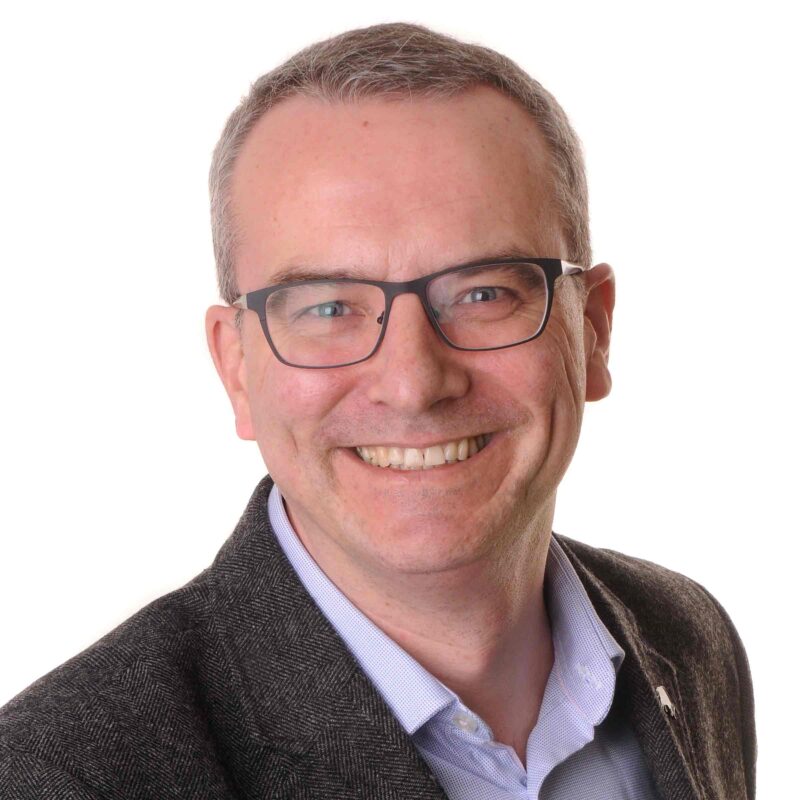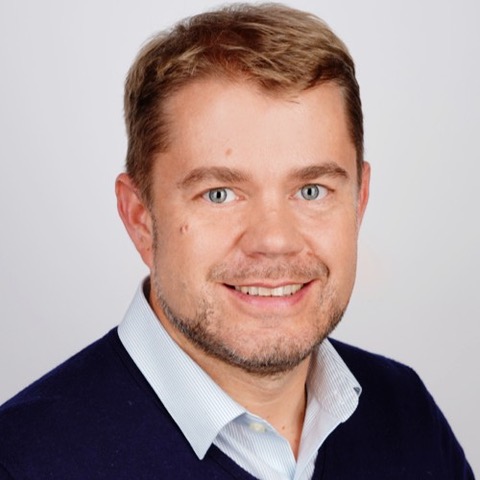COVID-19 has forced researchers to work from home and get used to not meeting colleagues, research participants and clients in person. We asked insights professionals in London, Milan and San Francisco how they have been affected.

In London, Martin Oxley, Managing Director of Buzzback Europe says “We are now slowly coming out of lockdown. There are times when I really appreciate working from home, for instance when I am trying to focus on writing. But I do miss the bonhomie and the face-to-face interaction with colleagues and clients and being able to talk to others.
“I also miss travel – I usually spend most weeks travelling around Europe and the UK which is something I love to do. However, the upsides of not travelling are that I am not getting up at crazy hours and getting home late, writing emails at airports, in an Uber, or walking the streets of strange cities trying to find out where I am, so my new work routine is physically less taxing but I am having some really weird dreams!”
“We have standardised our communications around Microsoft Teams and Zoom and it works really well. We have offices in NY and London and our business is international. I used to do a lot of my communications with my mobile because I was moving around and now it’s through my laptop because I’m at home. The impact of this pandemic on working practices would have been more difficult a few years ago but, thankfully, we were set up to work from home before it hit, so we already had the tools at our disposal to work efficiently.”
Meanwhile in Milan, Giulia Fabrizi, CEO of Almar Quality and ESOMAR Representative for Italy says “I’ve been working from home since 2013 when I founded my company which specialises in qualitative research. Smart-working style is not new to me.
“Most of my clients are large international companies and I work with them directly or through international research institutes. We are used to communicating online and video conferencing but for me the main issue is meeting my Italian clients, SMEs and big companies whom I look forward to meeting in person in a safe way. Phase 2 started from 18 May: we are learning to cohabit with the virus and we are now able to travel from region to region within Italy but you need to demonstrate the reason for travel, which must be related to a necessity like work or health.”
Dmitry Gaiduk, CEO of CoolTool and Founder of UXReality, based in San Francisco, comments “We started working from home in March. Our team is comparatively small but spread around the globe. In countries like Ukraine, Mexico, Portugal, we are used to working remotely and thus it was natural for us to adapt. Also to be honest, we were lucky with the business opportunity. We provide online tools for quant and qual non-conscious measurement as well as solutions for remote usability research. So we decided to perceive this situation as a call to action and to focus the team on our company goals and minimise their anxiety regarding the overall situation.
“Our team has positive and negative reactions to working at distance. Currently, we conduct internal study to understand the real effect when everyone is working from home. Some people enjoy the flexibility, the opportunity to have more time with their families and learning how to work differently. Others feel more disconnected and even depressed. We are social beings and remote conversations can’t substitute real-life discussions, brainstorming, emotional feedback and personal connections. But we notice that we are more productive then ever before so now we are thinking about how to organize work in the future and how to be flexible and stay productive.
”We’ve met clients through ESOMAR; we were at the conferences in Latin America, APAC, North America and Europe and right now we miss this. But there is another side of the coin – there are an unbelievable number of productive online conversations, and we are learning how to do things digitally that we used to do offline. I believe industry events will never be the same. Soon we will see fused events instead of pure offline or online conferences. Traveling and personal connections will always be important but we will learn to participate in many more events without the necessity of always being there physically.”
Accelerating switch to online
So given the disruption of the crisis and reduced clients’ budgets for research (see ESOMAR Insights in Times of COVID-19 Report), how has the pandemic impacted their ways of working?
Oxley says “We are an insights company that focuses on innovation, helping clients understand their steps on the innovation journey. In our work we use a mix of approaches: projective and enabling techniques, social listening and conventional tools to help us address our client goals. Fortunately, online research has been the bedrock of what we have been doing for 20 years. Unsurprisingly, we are seeing even more of a movement online even where historically we may have done face to face”
“We had our best year ever last year and I am anticipating the same for the first quarter of this year. After that I anticipate we will see some negative impact due to COVID. Thankfully we are an international business. Some markets and verticals are stronger than others and I am pleased we have a diverse set of clients as this has spread the impact of COVID on our business. We have also won projects looking at the impact of COVID on our clients sectors.”

ESOMAR Representative for Italy
COVID-19 has meant a time of adaptation and reinvention. Fabrizi has changed to online techniques as meeting people was no longer possible. “The impact has been quite strong, since working as qualitative researcher means meeting people in person, at their homes or in central location. So, I learned to use new digital techniques and tools, sharing tips amongst my network of colleagues. I have also created new synergies with professionals in different fields, such as big data analysts and started new collaborations with experts in disciplines such as semiotics, to better analyse the different emergent cultures that we are observing in this sort of ‘suspended time’.
“Not all clients are willing to switch to online so our role is to demonstrate to them that the ability to moderate, to keep the respondents engaged and to analyse in-depth can still be provided. For example, we are now conducting online projects on new product development, evaluation of products with trial at home as well as analysing the role of specific products in fitting the lifestyle and home environment of people. Respondents like to be involved in these kind of projects since they need to be able to imagine new products and services in the next phase and this can be done through online individual interviews or focus group discussions, whatever is comfortable for participants, through Skype, Zoom, Messenger or WhatsApp.
“Participants experience research as a way to escape because they can talk about things they love or something they will be able to use in the future in a proactive way.”
Gaiduk’s team has pivoted one of their tools. “We did some brainstorming and decided to build a platform for remote UX and UI testing instead of the app for on-site use in the lab. In just months, we developed and recently launched the virtual digital lab to run automated remote usability testing by applying behavioral insights – measuring the visual attention/eye-tracking and facial expressions.”
“We pivoted from lab solutions and hardware to digital tools a few years ago and COVID-19 is accelerating our next digital shift. We expanded the business to include new customers who previously ran traditional neuromarketing labs or conducted qualitative or face-to-face user experience research. The pandemic pushed almost all clients to go digital and to test remotely.“
Shifting habits
Many researchers are able to work from home but what about new habits in adjusting to this new situation?
Oxley comments “I’m better at exercising now as I can no longer say I haven’t got time. I am very fortunate that I live in a part of London that’s close to a couple of parks so that has been a bonus that I enjoy at the end of the day. I’m reading more so I am more reflective on a personal level. I see more of my teenage kids and I think I will look back and think this has been a very special time. Historically lunch was fuel and now it is family and it has become a ritual.”

Gaiduk says “I can split the day into two and spend half of the day with developers and the other with clients and partners and in between plan a run or spend time with my kids, which is great. I’m trying to accept this challenging time as a chance for great opportunities and changes.
“This situation changes our business habits too. I learned more digital tools to run the business. Our team now has a communication structure between different departments that we tried to achieve for years. Unfortunately, this online communication doesn’t fit all. Many people are good at communicating online, but for some, it’s tough to adopt. I hope we will handle this as every team member truly matters.”
Fabrizi believes it is important to maintain a routine “I have two teens at home, one is a university student who is following lessons online and my daughter who is attending school from home. I encourage my kids to stay committed with school, to play sport at a fixed time everyday, read more and stay in touch with friends – my daughter asked me to teach her how to play the piano. I say to them “we cannot go outside so let’s go inside – we have to use the situation to explore new potentialities and enlarge our knowledge, we could say it in Latin: from VIRUS to VIRTUS”.
“I launched an ‘online tea time’ and every afternoon I support others talking about their feelings and how to cope with this situation. I also belong to a Facebook social street, with 10,000 members. These Social Streets are based on the sense of trust and mutual help amongst people: buying grocery or drugs for elderly or homeless people, sewing facemasks for others, and so on. I also offer LEGO® SERIOUS PLAY® online sessions to help parents managing their children, who are the most impacted by the situation. Lego bricks are used to build 3D models and storytelling narratives are created to analyse how to cope with difficult situations.
“I am busier than ever. There has been an explosion of activities and I thank the ESOMAR team for involving me in supporting our industry and I really appreciated the activities celebrating international market research.” So the part of my life dedicated to research has increased and the Italian community has being prompted to be more active.
Part 2 of this article – How insight professionals are preparing for the next phase in living with COVID-19– will be published 1 June. (ed.)


